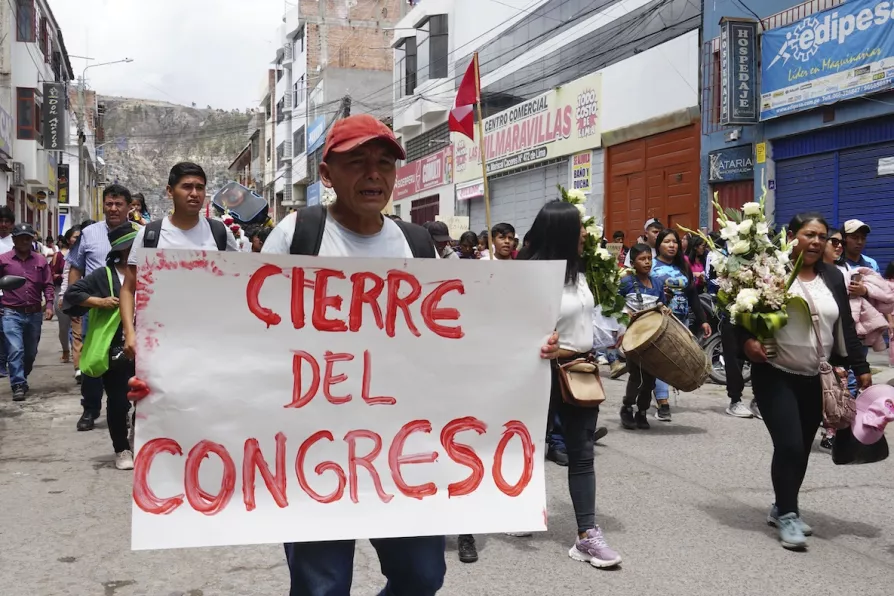Peru: end the military-parliamentary dictatorship
With the ousting of Pedro Castillo and the installation of a repressive de facto regime, FRANCISCO DOMINGUEZ explains why the popular mobilisations in Peru need maximum solidarity from here in Britain and around the world

 REPRESSION: A man with a sign that reads in Spanish: ‘Shut down Congress,’ in the funeral procession of Clemer Rojas, 23, who was killed during protests against new President Dina Boluarte, in Ayacucho, Peru
REPRESSION: A man with a sign that reads in Spanish: ‘Shut down Congress,’ in the funeral procession of Clemer Rojas, 23, who was killed during protests against new President Dina Boluarte, in Ayacucho, Peru
FOLLOWING the coup d’etat against Peru’s democratically elected president Pedro Castillo, Dina Boluarte has become the willing instrument of that country’s oligarchy to preside over an illegal, brutally repressive de facto regime.
These events of 2022 have strong similarities to the establishment of a dictatorship in Bolivia with Jeanine Anez in 2019.
And, as in Bolivia, the domestic ruling oligarchy, the infamous Organisation of American States secretary-general Luis Almagro, and the US embassy were heavily involved.
Similar stories













